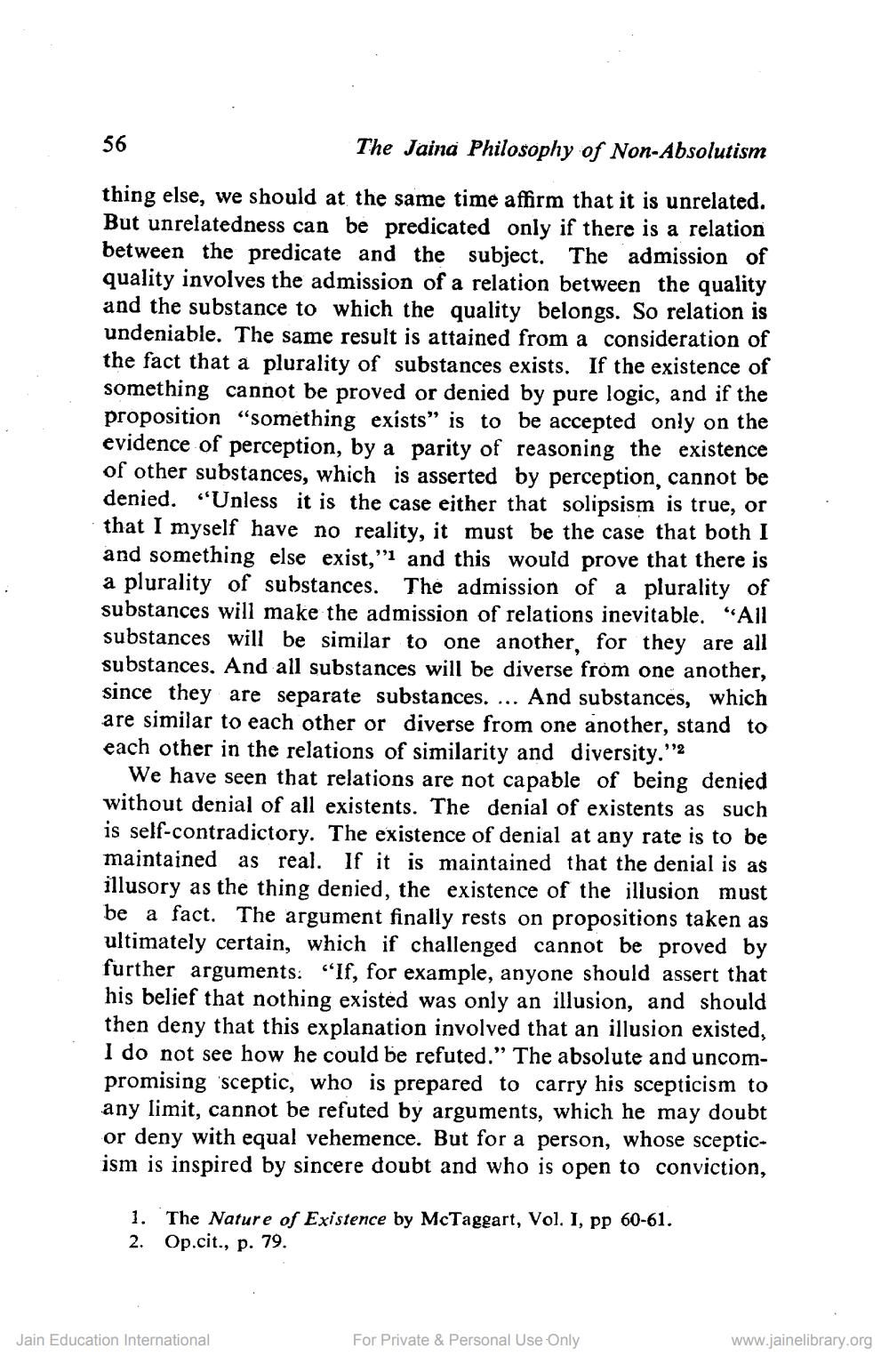________________
56
The Jaina Philosophy of Non-Absolutism
thing else, we should at the same time affirm that it is unrelated. But unrelatedness can be predicated only if there is a relation between the predicate and the subject. The admission of quality involves the admission of a relation between the quality and the substance to which the quality belongs. So relation is undeniable. The same result is attained from a consideration of the fact that a plurality of substances exists. If the existence of something cannot be proved or denied by pure logic, and if the proposition "something exists” is to be accepted only on the evidence of perception, by a parity of reasoning the existence of other substances, which is asserted by perception, cannot be denied. “Unless it is the case either that solipsism is true, or that I myself have no reality, it must be the case that both I and something else exist,”1 and this would prove that there is a plurality of substances. The admission of a plurality of substances will make the admission of relations inevitable. “All substances will be similar to one another, for they are all substances, And all substances will be diverse from one another, since they are separate substances. ... And substances, which are similar to each other or diverse from one another, stand to each other in the relations of similarity and diversity.''2
We have seen that relations are not capable of being denied without denial of all existents. The denial of existents as such is self-contradictory. The existence of denial at any rate is to be maintained as real. If it is maintained that the denial is as illusory as the thing denied, the existence of the illusion must be a fact. The argument finally rests on propositions taken as ultimately certain, which if challenged cannot be proved by further arguments. "If, for example, anyone should assert that his belief that nothing existed was only an illusion, and should then deny that this explanation involved that an illusion existed, I do not see how he could be refuted." The absolute and uncompromising 'sceptic, who is prepared to carry his scepticism to any limit, cannot be refuted by arguments, which he may doubt or deny with equal vehemence. But for a person, whose scepticism is inspired by sincere doubt and who is open to conviction,
1. The Nature of Existence by McTaggart, Vol. I, pp 60-61. 2. Op.cit., p. 79.
Jain Education International
For Private & Personal Use Only
www.jainelibrary.org




